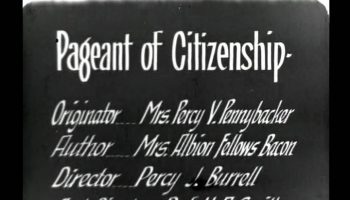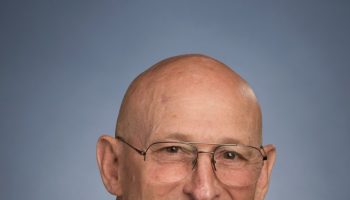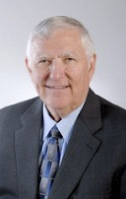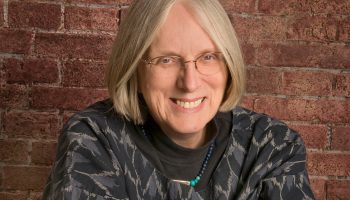In his 1989 article and later book, “The End of History?,” the historian Francis Fukuyama declared that the collapse of the Soviet Union and its Eastern European satellites signalled the unequivocal victory of liberal democracy and capitalism over totalitarianism and communism.
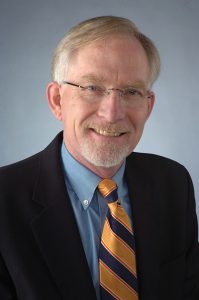
The end of the Cold War, many believed, meant a realistic new hope for a more peaceful and democratic world order.
“People don’t realize it, but the Cold War, from 1945 to 1993, was the bloodiest war in history and resulted in the deaths of 90 million people, mostly within their own borders,” said David M. Crane, the chief prosecutor for the Special Court for Sierra Leone in 2002.
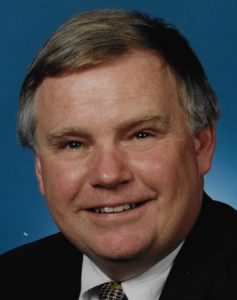
At 3:30 p.m. Tuesday, July 24, in the Hall of Philosophy, Crane will discuss “The Future of International Criminal Tribunals in an Age of Extremes” with Greg Peterson, a lawyer and co-founder of the Robert H. Jackson Center in Jamestown, as part of the Oliver Archives Heritage Lecture Series.
The Sierra Leone court, created to address the horrific war crimes that took place during that country’s 11-year civil war, arrested and convicted the Liberian President Charles Taylor, the only sitting head of state to be tried and convicted by an international tribunal. It was one of four created after the Cold War.
The others were the prosecution in The Hague of the leaders of various factions in the civil war in Yugoslavia; the tribunal to bring to justice those complicit in the Rwandan genocide; and the trial of Khmer Rouge officials accused of killing millions of their Cambodian countrymen.
These tribunals were the first international trials since the proceedings against Nazi war criminals in Nuremberg after World War II, which were led by the American jurist Robert H. Jackson. To Crane, the tribunals represented a global commitment to hold accountable those responsible for slaughtering their own people.
Crane’s recently published book, The Founders: Four Pioneering Individuals Who Launched the First Modern-Era International Criminal Tribunals, which he co-edited with two other tribunal prosecutors, looks at how the trials were created and carried out, largely through the eyes of the prosecutors. A book about his personal experiences in Sierra Leone, Every Living Thing, is scheduled to be published later this year.
“We crossed the Rubicon on the international community holding people to account,” Crane said. “But now the whole concept of modern international criminal law is under attack. We have the ability to hold people and institutions accountable, but we lack the political will.
“It is amazing how we departed from this moment of incredible possibility to where we are today.”
-David Crane, Chief prosecutor, Special Court for Sierra Leone
He points to the unending carnage in Syria and Yemen as examples of war crimes carried out under the helpless gaze of a paralyzed international community.
“This is the most dangerous time I have ever seen since the Cold War,” said Crane, who before being appointed to the Sierra Leone court by the United Nations served for many years as a top intelligence officer in the Department of Defense. “We are living in a world where state-centric, nativist interests outweigh international cooperation.”
Such nativist movements have led to a surge in authoritarianism across the world, Crane said. Strongmen like Vladimir Putin of Russia, Kim Jong-Un of North Korea, Xi Jinping of China, Abdel Fattah el-Sisi of Egypt, Rodrigo Duterte of the Philippines and Nicolas Maduro of Venezuela reign with little restraint. And nativistic populists continue to gain traction in Western Europe and the United States, he said.
Crane sees clear parallels to 1930s Europe and the West today.
“Absolutely,” he said. “We’re at 1929 or 1930 right now. The German people were resisting Hitler, but over the next two or three years, they just got tired of being beaten down, and they let it happen. “Joseph Goebbels said, ‘If you tell them lies long enough, they will believe them.’ How could a people, a civilization like Germany’s, with its achievements in science, literature, art and music, give birth to Hitler and Nazism? How could a United States birth a Donald J. Trump?”
Crane may be pessimistic about the current state of global affairs, but he is warily optimistic about the future.
Trump, Crane said, is not going anywhere.
“He will be re-elected,” Crane said. “His base is unmoved by the crazy things he says and does. Ninety percent of Republicans support him, and 70 percent supported his latest monstrosity of treason in Helsinki.”
President Bashar al-Assad of Syria, the apparent victor in his nation’s savage civil war, is another story, Crane said.
Before Crane retired this year as a professor of international law at Syracuse University, he created the Syrian Accountability Project, which built and maintains a database and index matrix cataloguing the crimes against humanity perpetrated by Assad and the leaders of other Syrian fighting factions.
“Assad may have won the battle in Syria, but there is a long time to go,” Crane said. “Someday, I’ll be standing at his door and saying ‘You’re under arrest, my friend.’ In the meantime, we have got to keep on fighting and go where we need to go.”

